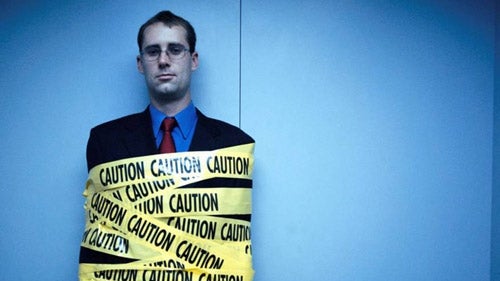
You receive a phone call, open an email, hear from a friend-of-a-friend about some company that is providing business loans at fantastic rates. You can’t help but wonder, is this the source of working capital you’ve been searching for, or the start of a very painful learning experience? What should you do when you come into contact with a lender with whom you have no name recognition or prior experience? Here are some warning signs to look for to identify a bad lender.
Do Your Research
The first step is to do your research. Take the name of the lender, their address, and contact information. If they are located outside of the country, throw away the aforementioned information immediately and move on. At the bare minimum, you only want to work with those lenders who have to adhere to and be compliant with commercial, banking, and financing laws in the United States.
If the lender is located in the United States, start researching. Using a search engine, type in the lender’s name, followed by the terms “news,” “complaints,” and “lawsuits,” among others. In addition to search engines, there are message boards where people can leave comments and complaints; any company doing enough business is bound to draw a few. Pay special attention if you see complaints on sites such as RipOffReport.com, the Better Business Bureau, or Complaints.com. Notice if the complaints are originating from one or two angry customers, or someone with unreasonable expectations. One to two complaints is normal; a warning sign would be seeing ten to twenty over a short period of time.
Suspicious Fees
The most obvious sign of a bad lender is a request for a big fee up front. A classic scam is for an unscrupulous lender to offer an oversized loan at an attractive rate of interest and quick closure. As the scam proceeds, the victim learns that all that is necessary to complete the deal is a “nominal” fee to cover administrative costs. This fee might be $10,000, $50,000, or even, as in one case noted on RipOffReport.com, $300,000. The check gets cashed (or the wire transfer completes), and then communication ends, leaving you out the fee amount with no loan to show for it.
There are legitimate companies who may request an “underwriting fee” up front to process your paperwork. You can expect this if you are asking for a large amount of money, your business has some financial challenges and damaged credit, or your industry has a high default rate. This fee can typically range from a few hundred to a few thousand dollars. If it’s higher than that, though, ask the lender to justify the fee and to also provide client references.
Vague Details
Another warning sign is vague terms that are “to be discussed later.” Forms that have blanks or contain false information that the lender “will fix later” are a serious problem. A legitimate lender will want you to be completely honest. Being asked to lie or use aggressive “rounding” of numbers exposes you to potential fraud liability.
There is a balancing act: you need to provide enough information to a potential lender so that they can assess your financial stability, price your loan, and provide you with a valid offer. What typically happens is that a lender will ask you to complete an application, provide a few months of bank statements, and pull your credit report. Based on this information they can make a “soft offer” in which they are stating that they will lend you a certain amount of money at a specified rate if all of the information provided can be verified.
A legitimate lender will not give you pricing information without taking you through this process. If you are speaking with someone and they claim they can provide you $100,000 at prime rates, without receiving any documentation from you, end the conversation.
Published: December 18, 2012
2534 Views
2534 Views














